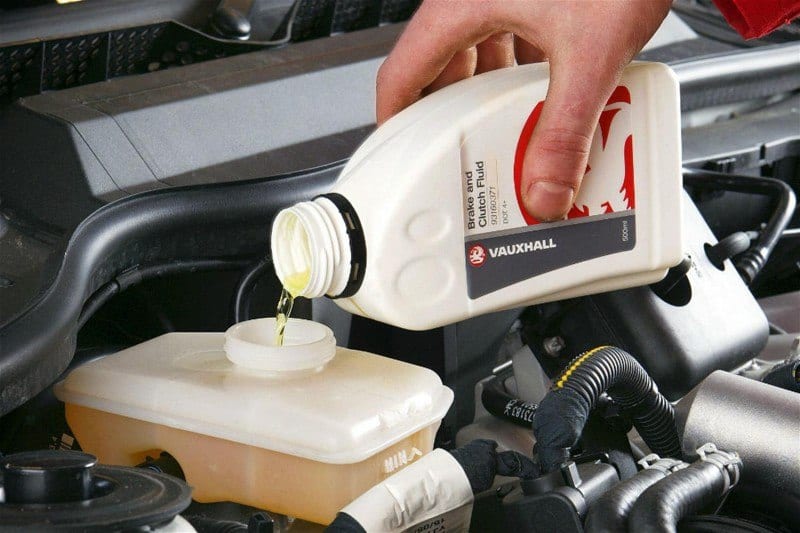
Does brake fluid have “hidden properties”?
Regardless of the year of production and class, each car in the engine compartment has a small expansion tank with liquid, which can easily damage the vehicle. Consider a few questions about this substance, as well as how dangerous this fluid is for auto parts.
Common myth
There are many myths on the Internet regarding the “hidden” capabilities of TJ. One of these "tales" sways its cleansing properties. Some recommend it as an effective tool for removing scratches.

Someone even claims that after this method you do not need to paint over the treated area. According to their advice, it is enough to lower a clean rag in a tank with liquid and rub the damage. The scratch will be removed without any polishes.
Many people know this method. Unfortunately, some "professionals" use it when a scratched car is brought to them. The consequences of this method are much worse than if the car was doused with solvent. Brake fluid is the most aggressive material for paintwork. It softens the varnish.

This creates the effect of abrasive polish (small scratches are filled with softened paint mixed with varnish). But, unlike polishes, brake fluid acts on the paint constantly, and it is extremely difficult to remove it from the surface of the body.
Chemical composition
The composition of almost all types of modern brake fluids includes a large number of aggressive substances with a carbon compound. Each of them easily reacts with layers of paintwork.

The reagents that make up the TJ almost instantly react with most auto enamels and varnishes. The only elements that are less susceptible to aggressive TJ are water-based automotive paints.
Brake fluid
From the moment of contact of the liquid with the painted surface, the coatings swell and swell. The affected area becomes voluminous and collapses from the inside. This is not an instant process, so after such a “cosmetic” procedure at the service station, some time will pass, because of which it is impossible to prove the guilt of the “masters”. If the motorist does not take any action, your favorite car will be damaged.
If TJ reacted with a paint coating, it is almost impossible to remove from the surface. In this case, even polishing will not help. Stains will necessarily appear on the paint, and in the worst case, the liquid will get to the metal and accelerate the oxidation reaction. To eliminate such damage, you will need to remove the old paint on a surface slightly larger than the stain itself. After processing the body, a new paintwork is applied.
Apparently, it is necessary to use brake fluid accurately. Although it is not acid from the battery, nevertheless, it is a rather dangerous substance that can add work to the motorist. In view of this danger, one should not experiment with the use of TJ.

Parts that have been exposed to brake fluid, after some time remain completely without paint. Later, rust begins to appear, and behind it, holes. If this is part of the body, it will rot very quickly. Each car owner must add this technical fluid to the list of aggressive substances from which it is necessary to protect the car body and its parts.
In the engine compartment there is always an insidious substance that can cause serious harm to transport at any time. Moreover, in no case should you use this “miraculous remedy” to eliminate color defects, scratches and cracks.
Questions and answers:
What happens if brake fluid gets on the paint? Most brake fluids contain substances from the glycol class. These, in turn, are excellent solvents for most types of paints.
What liquid can spoil the paint on a car? Common solvent - it will neutralize the paintwork. The presence of brake fluid on the body leads to swelling of the paintwork to the very metal.
What paint is not corroded by brake fluid? If the brake system is filled with DOT-5 fluid, then it does not affect the paintwork. The rest of the brake fluids spoil absolutely all car paints.